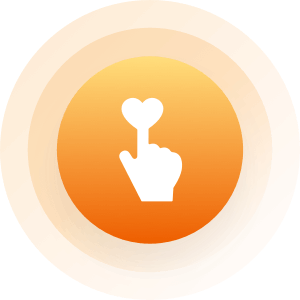|
Topic:
karma?
|
|
|
"I'm not exactly a Buddhist either, but the message in Buddhism is put more starkly - the end of desire is the end of suffering. That includes, for me, the desire to do the right thing." Nope that ain't it at all. In fact there are clearly defined "right" or correct actions that must forever be adhered to. Hi enderra. Yes, I'm familiar with the Precepts and what they entail. I view them in much the same way as I view The Ten Commandments, and do my best to follow them. However, when one chooses to live by either or both, they are choosing to live within an imposed or external framework. My general point was that both Traditions promise that it is possible to eventually break out of this framework and into a place where The Precepts or The Commandments are kept without thought or effort. I've found in my life that if i'm not careful (or mindful), my desire to adhere to rules as a means to an end can carry me away, and I wind up bogged down in process. I hope this is a little clearer. At times, using words to discuss these things is like trying to peel a carrot with a hatchet, I find. Hey Joad, Interesting way of looking at it. I am going to take a few pokes at it, not to say you are wrong but to widen both of our views I hope. Let's just start by agreeing that we are human and we live with other humans on this planet. There are some things humans have in common despite their cultural, religious or racial backgrounds. An example is that us humans have a concept of mine and yours. If I take what is yours without asking or without offering what is mine in return, trouble seems to follow. My question to you is, would that scenario exist with or without Jesus or Buddha? Thanks Enderra. I learn more from discussions than debates, no doubt the knuckle headed anti-authoritarian in me. Besides, seems like the truth in this stuff is seldom all one thing or the other. I'll poke too. Based on the mine/yours premise, I'd say yes, that scenario would be present regardless, unless all humans became either truly delivered or enlightened or whatever you want to call it. Seems I remember reading that in some cultures though, whether any still exist or not, there is no concept of mine/yours when it comes to material things. Hard to imagine. I guess they would still differentiate between, say, my thoughts/your thoughts, though. Anyhow, I think one of the ideas in Buddhism is that, without desire for and attachment to material things, no one can really take anything from you. You don't "have" anything. These are ideals, I know. How do you see it? |
|
|
|
|
|
Topic:
karma?
|
|
|
"I'm not exactly a Buddhist either, but the message in Buddhism is put more starkly - the end of desire is the end of suffering. That includes, for me, the desire to do the right thing." Nope that ain't it at all. In fact there are clearly defined "right" or correct actions that must forever be adhered to. Hi enderra. Yes, I'm familiar with the Precepts and what they entail. I view them in much the same way as I view The Ten Commandments, and do my best to follow them. However, when one chooses to live by either or both, they are choosing to live within an imposed or external framework. My general point was that both Traditions promise that it is possible to eventually break out of this framework and into a place where The Precepts or The Commandments are kept without thought or effort. I've found in my life that if i'm not careful (or mindful), my desire to adhere to rules as a means to an end can carry me away, and I wind up bogged down in process. I hope this is a little clearer. At times, using words to discuss these things is like trying to peel a carrot with a hatchet, I find. |
|
|
|
|
|
Topic:
karma?
|
|
|
my understanding of it is, what ever you create you must experience the effects although this wording can mean several things, it is the wording i like best, it implies a complete fairness to everything that has and will happen to us, as well as everyone else. and gives us responsibility for our life, and future lives if you believe in reincarnation any thoughts? insights? agree? disagree? i posted this in general religion too, but i figure i would get more responses here. The concept of the Golden Rule in Christian Tradition and Karma in the Eastern Traditions are no doubt excellent rules of thumb when it comes to "doing the right thing.". Difficulty arises when we don't know what the right thing may be, or when, no matter how sure we are that we know what the right thing is, we don't . Each of these traditions asks us to take a step further into a place where our actions are motivated by something other than our every day minds. In Christianity, this motivational center that we are asked to act out of is sometimes referred to as Christ Consciousness or Grace or That Still, Small voice. In Buddhism, True Nature or the True Self, through which one acts without acting. In Taoism it's the Tao itself. I personally see them all as the same, but I'm not too picky. To find this center, all of them ask us to, in one way or another, actully put aside our desire to do the right thing and our preconceptions of what the right thing is. I'm not a Christian, but I have come to think that the overarching message of the New Covenant is that it's possible, through following Christ, to be free of the old rules and regulations about what the right action may be in a given situation, and through Grace, live in a way that right action flows as a matter of course, without regard to consequence. I'm not exactly a Buddhist either, but the message in Buddhism is put more starkly - the end of desire is the end of suffering. That includes, for me, the desire to do the right thing. So, to get back to the original idea "whatever you create you must experience the effect," I agree. I'm just not sure it's the best basis for deciding *what* to create. |
|
|
|
|
|
<<Topic: eternity is kind of a long time isn't it...?>>
Yes, a very long time. Possibly the longest. |
|
|
|
|
|
Topic:
karma?
|
|
|
I see it everyday working at the hospital! No matter how many times you think you can get away with something in your life eventually it will come back on you, sometimes with a tragic end. I have very little pity for most of my patients. "Those that live by the sword, die by the same", either it be by drugs, alcohol or simply very bad judgment & life choices. Well I would say that your lack of pity will perhaps bring about it's own karmic outcomes in your life. The buddha teaches that the compassionate person works for the liberation from suffering for ALL living things. Perhaps you could think of it as an opportunity to reflect on how you would want to be treated if you were to find yourself suffering as a result of the karma that you have created. Just a thought. Have a nice day. Compassion and pity are two distinctly different things. |
|
|
|
|
|
yea man..... lot's of junk out there... too bad it's all gonna come true, lol... one's human's junk, is what another build it's lifeboat for the future out of, lol... not one word of this thread will not come true in one way or another, oh ye of such miniscule belief, in anything more than just what two eye's single eye's see, and deem as the pulse of the entire cosmos, lol... hell yea, what a great and sad party it shall indeed be, all at the same time. what a floating party rama it shall be indeed. Hello again everybody. This post and JB's remind me SO much of "The Restaurant at the End of the Universe" by Douglas Adams. |
|
|
|
|
|
Topic:
Burble
|
|
|
Like that; the skirt, the sound, and the word "burble."
|
|
|
|
|
|
Topic:
water
|
|
|
I'll walk with you she said without words without thought without intent what wondrous light this stream these stones this easy confluence of tumbling lives |
|
|
|
|
|
Gosh nicenurse! How ya been? Why do you have to live all the way on the other side of this state. Why not come to the beach this year? We'll have coffee and brunch at The Pelican on Ocracoke Island.
|
|
|
|
|
|
Edited by
joad
on
Sat 03/21/09 04:16 PM
|
|
|
<<<<<How are we intuitively guided? Don't we all experience from varying degrees a certain amount of intuition, knowing or wisdom that comes from within? What if this so-called god about which we constantly debate resides in each of us as if like a personal angel or higher self? What if the link between our everyday conscious thought and whole (Universal) understanding was a visceral pathway through the subconscious mind? What if we decided to call the place in each of us that holds the potential for complete connection to wisdom... "higher self"? When one becomes completely opened to one's own greater or higher self, perhaps it's like finally being reunited with one's own soul mate. We hear how this happens just before death... Complete recognition, peace and understanding.>>>> My personal belief is that the whole idea of a soulmate, has grown out of the need to answer the calling home of our own soul, or higher self, as you put it. |
|
|
|
|
|
Topic:
Where are all the NC people?
|
|
|
Relocated to Swan Quarter.
|
|
|
|
|
|
Topic:
The Meaning of Life
|
|
|
Joad, Why would it be absurd? A process can still have meaning and I have no doubt that meaning would be different to anyone observing the process based on the very thought processes of the observers. Wow, this can go round and round, can't it? What I'm trying to express is that while I don't believe life in itself is without meaning, I believe the meaning can only be experienced in a way that cannot be expressed in words. The meaning is the stirring we feel inside of us as we consider the question. I guess I could liken it to a poem that appears meaningless yet moves us anyway. I have no way of knowing if the experience is the same from individual to individual, but I suspect it is, if they are open to it. This is a personal viewpoint and I'd be the first to agree that it is completely irrational. That's actually my point. :) |
|
|
|
|
|
Topic:
The Meaning of Life
|
|
|
If one considers life a process, asking what the meaning is becomes absurd. What's the meaning of wind?
Important questions nonetheless. |
|
|
|
|
|
Blessing or Bane
Near China's northern borders lived a man well versed in the practices of Taoism. His horse, for no reason at all, got into the territory of the northern tribes. Everyone commiserated with him. "Perhaps this will soon turn out to be a blessing," said his father. After a few months, his animal came back, leading a fine horse from the north. Everyone congratulated him. "Perhaps this will soon turn out to be a cause of misfortune," said his father. Since he was well-off and kept good horses his son became fond of riding and eventually broke his thigh bone falling from a horse. Everyone commiserated with him. "Perhaps this will soon turn out to be a blessing," said his father. One year later, the northern tribes started a big invasion of the border regions. All able-bodied young men took up arms and fought against the invaders, and as a result, around the border nine out of ten men died. This man's son did not join in the fighting because he was crippled and so both the boy and his father survived. From here: http://www.chinavista.com/experience/fable/b5fable1.html#6 |
|
|
|
|
|
Topic:
Paradox anyone?
|
|
|
paradox is not the same as contradiction. A commonly sighted paradox, you go back in time and kill your father before you were born. Paradox. the blue ball is red- contradiction. See the differance. Yes, I see the difference.I don't believe your example is an appropriate corollary to the true/false example though. And while I also agree that contradiction isn't paradox, contradiction is a necessary component of paradox. Two contradictory things that each appear to be true is pretty much the definition of a paradox. I believe the reason the example "The following statement is true: everything I say (write) is false" is paradoxical is rooted in our necessity, as humans, to accept each others statements as true, unless we have reason for suspicion (dealing with a used car salesman), or the statement contradicts what we already know to be either true or false: A blue ball is blue = true. A blue ball is red = false. Imagine what life would be like if our initial assumption when someone states something is that it is false until proven true. So: What I am about to say is true. Response- OK Everything I say is false. Response- OK... Hey, wait a minute! That means what you said before is false, which means that what you're saying now is true, and so on. Where, to paraphrase, if you don't mind: All blue balls(!) are blue. Response- OK This blue ball is red. Response- "...Whoa... no sorry try harder" - as you say. The statement "everything i say is false" is the same as the blue ball is red, meaning its observer dependant which is the explanation for godels therom. You con not dertmine the validity of a staement/equation without being outside that system or rules you used to come to that conclusion. See now? "Every thing I say is false" is self-contradictory only when one assumes the speaker's statements are true. You stated it more accurately earlier when you reduced both sides to "This true statement is false." It's no different than your earlier analogy assuming the existence of a time machine: "I can't kill my father because I can kill my father." A contradictory self-referential statement differs in my mind from a simple contradiction in that it appears to be simultaneously true and false, when, as you stated, considered within the system of rules used to consider it And, if I understand Godel's theorem correctly, once one steps outside that system of rules in order to consider the statement, the same problem arises because the original system of rules is contained within the new system of rules. That's so mind-numbingly paradoxical that I begin having serious difficulty thinking about it. Paradox? Contradiction? Who cares what we call it? Let's call it the "Pompitous Effect" and be done with it. |
|
|
|
|
|
Topic:
Paradox anyone?
|
|
|
'cause I speak of the pompitous of love
I intend to reply to your post. Just have other stuff to do occasionally. |
|
|
|
|
|
Topic:
Paradox anyone?
Edited by
joad
on
Tue 01/06/09 06:06 AM
|
|
|
Some call me the thread ender. some call me the space cowboy |
|
|
|
|
|
Red_ you seem to be very well informed. Have you ever considered or read about the possible effect that potential malpractice suits might play in the over prescription of meds in the mental health field?
|
|
|
|
|
|
Edited by
joad
on
Sat 01/03/09 04:25 PM
|
|
|
You're welcome Billy - thanks for the OP and the opportunity.
Splendid, Jess, and Red - While I'm naturally attuned to the needs of the deeply depressed, as I'm sure you are, I couldn't agree more with your posts when it comes finding a different approach for mild to even moderate depression. I can't tell you how many people I've run across who have been prescribed antidepressants, usually by a GP, in times when many of the symptoms of depression are perfectly appropriate to the situation. Grief for example. Often this diagnosis is further complicated by the lack of knowledge by the patient and for whatever reason, the lack of responsibility on the part of the doctor to properly inform the patient of possible side effects and the fact that most of them are usually temporary. Or that it isn't uncommon for the beneficial effects of the drugs to require 4 to 6 weeks before appearing. Or that the sudden cessation of the medications may lead to very troubling side effects up to and including suicide. Or that medication when combined with one of the talking therapies greatly increases successful outcomes. These are serious drugs and those who take them should be monitored in my opinion. This is commonly overlooked. Also often overlooked by GPs and patients is the benefit of of various things the patient has full control over and are either considered to be or have been proven to be effective. Getting a half hour of sunlight each day. A more nutritious diet. Developing as regular a sleep pattern as possible. Exercise. Avoiding isolation. Re engagement in hobbies and normally pleasant pastimes even if they aren't immediately enjoyed. There are many others. While these things are often impossible to carry out for the deeply depressed, they normally can be carried out by those who are mildly to moderately clinically depressed or are temporarily depressed for appropriate reasons. My personal belief is that some combination of the above would often suffice as treatment, but careful examination and monitoring are key, and that doesn't often happen. We've been given a false promise by the medical, pharmaceutical and alternative medicine communities that meds, or herbs, or anything else one can think of will cure us without our having to put in any effort. Unfortunately, it just isn't like that with depression. |
|
|
|
|
|
Too bad ol' Rudolph Steiner isn't around for this.
|
|
|
|
|






